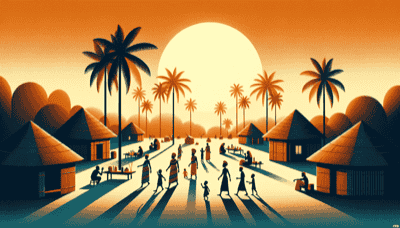We're here to help you keep count of the days to or since a date. Just click the button below and enter your chosen date to get started. Also choose the suggested days or search for a special day above #countingthedays

The December Solstice, also known as the Winter Solstice in the Northern Hemisphere, typically occurs on the 21st or 22nd of December. In Nigeria, which is situated near the equator, this astronomical event doesn't bring about as drastic a change in daylight and darkness as it does in more temperate regions.
Daylight: On the day of the December Solstice, Nigeria experiences approximately equal lengths of day and night because of its equatorial location. There isn't a significant shift towards longer nights or shorter days that you would find in countries further from the equator.
History and Traditions: Nigeria's diverse culture means that traditional observances of astronomical events like solstices are not widespread. Historically, many indigenous Nigerian cultures were more tuned to lunar cycles than solar ones for their festivals and agricultural activities.
Activities: Modern-day Nigerians typically do not celebrate the December Solstice with specific cultural rituals. The day passes much like any other without nationwide traditions or public holidays tied to it. However, some individuals interested in astronomy or those following neo-traditional religions may mark the event privately or with small gatherings.
In summary, while the December Solstice is an important astronomical occurrence worldwide, it does not have a significant impact on daily life or cultural practices in Nigeria.